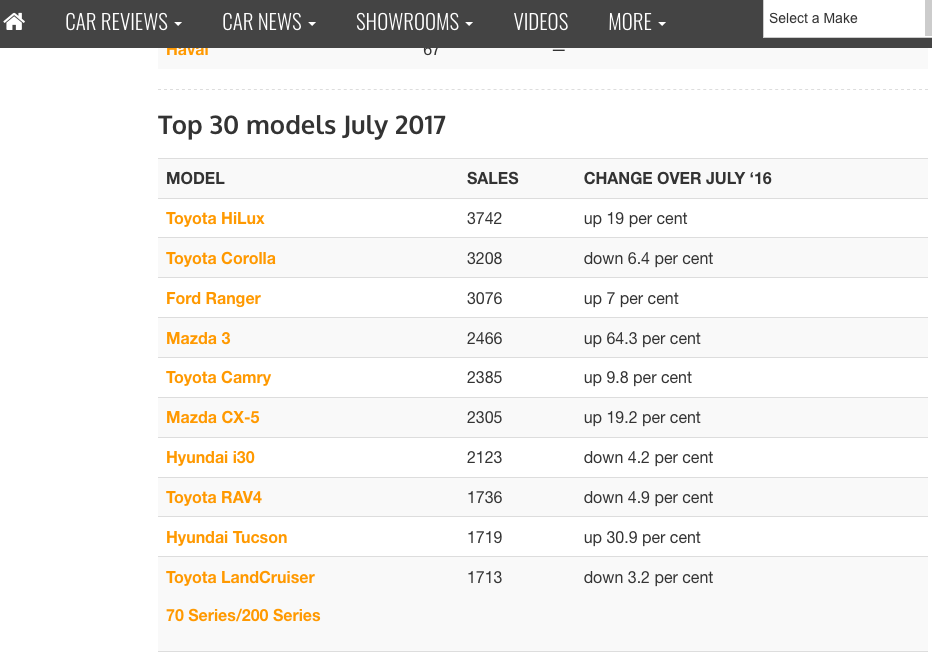-
Posts
666 -
Joined
-
Last visited
-
Days Won
32
Content Type
Profiles
Forums
Events
Gallery
Tutorials
News & Articles
Videos
Posts posted by ZZT86
-
-
Petrol
in Camry Club
My point is if the fuel is bad or lesser than minimum required then the ecu would have to retard timing based on info from the knock sensor, ie: if the engine is pinging its head off. Some cars are so bad I hear them before they even pass me. The ecu is a learning/adaptive device but it can only do so much to protect the motor, the rest is up to physical strength & time before it all goes kaboom, hence why I use a higher octane fuel than recommended. I also have a very sensitive butt dyno 😉
I'm aware of variable compression engines in the pipeline as @campbeam has pointed out above but not aware of any currently on the road. My understanding is you can vary boost pressure on the intake but the engines physical maximum compression does not change until Nissan & others release their stuff in the next year or so.
I got a wake up call regarding a lot about tuning when I got to see ecu logs of different fuels on the same motor. On 98 the engine has its timing reduced as it silently pings away reducing maximum output & acceleration for a given rpm, on E85 there is little if any ping & is able to perform to it's potential without retard in timing giving maximum acceleration. Not saying everyone should run E85 because you can't without a tune at least but it's an extreme example of the difference in knock/ping versus our fuel type/RON used.
The higher the octane the higher the resistance to knock.
-
Petrol
in Camry Club
So if your average car is designed & tuned to run on 91 octane fuel but you really have 89 octane or less in the tank will the car produce the same power & give you the same mileage as was intended & at what cost to the engines longevity ?
I'm not aware of any variable compression engines - care to mention some ?
-
Have clarified Melb pricing above which are RRP only & does not include haggling !
-
-
Doesn't look like a GTP . . . here's one . . https://www.gumtree.com.au/s-ad/cranbourne-north/cars-vans-utes/toyota-camry-touring-gtp/1166642356
Head Unit isn't stock but the rest looks it, good nick too. Your biggest problem will be parts, and a V6 engine.
-
Petrol
in Camry Club
Another thing to note - petrol heads prefer Hi Octane so YMMV :| Can vouch for United 100, used it on my gen7 celica occasionally & it woke up instantly, not that it was asleep. Again, I'm of the opinion that petrol in Oz is absolute rubbish & not the RON they claim it to be but much lower.
-
Petrol
in Camry Club
I always use 95RON min on my 1MZ-FE mostly because our 91 is crap. Definitely can feel improved acceleration, economy also although have not proved this conclusively with multiple fuel economy tests - need a really consistent right foot & weather conditions.
-
I'm tempted to off my two cars & get the sporty/smart lookn V6 in that delicious wine colour no matter how much of a prick it might be to service. The V6 looks the goods as I like smooth quick power/torque delivery, steering wheel could be better/aka 3 spoke but otherwise beautiful. Perhaps I'm becoming an 'ol fart ?
-
-
I have a similar problem with at least 1 of the globes on my MCV20R - I intend to pull the dash out at some stage :/ Not difficult from memory.
-
I reckon it can't hurt, has dual capture method & maintains fluid pressure - it can only be a good thing prolonging transmission life. The rec change intervals are what ever they rec or sooner, it's easy to do if conveniently placed & cheap. Perhaps twice every fluid change or once a year.
-
I'm considering one of these for my MCV . . . http://www.ebay.com.au/itm/FILTER-INLINE-MAGENTIC-TRANSMISSION-amp-POWER-STEERING-FLUID-MAGNEFINE-3-8-/222655804148?
-
On 9/22/2017 at 12:07 PM, campbeam said:
I think you will find that the A960E automatic transmission fitted to the Toyota 86 also is "sealed" without a dipstick.
I wouldn't know - mines a 6 speed manual ;) Have swapped out fluid several times already - a cinch.
-
Wow ! Interesting info, Aurion doesn't have an AT dipstick to check level ? Struth ! Not sure it can be done accurately with the Aurion but on my old MCV20R Camry I flush the fluid via the oil cooler lines & top up through the dipstick same amount that comes out at 2L intervals until the fluid that exits the cooler lines is clean/new.
Recently I quizzed Penrite techs about Auto transmissions & their fluids as I know little about them (I have driven only MT cars all my life = almost 30 years) & they're of the opinion it's mostly heat that destroys/breaks down AT fluid & ultimately the transmission itself. Their recommendation was "changing the fluid and filter every 2 to 3 years 38500 km to 58000 km or once a year/every 32000 km if a vehicle is used for towing or other severe service use"
They also said:
"Heat is the main concern for ATF. Automatic transmissions create a lot of friction, and friction produces heat. The fluid is constantly churning inside the torque converter and being pumped through metering orifices and hydraulic circuits. Every time the transmission shifts gears, the clutch packs generate even more heat that must be carried away by the fluid. The greater the load on the transmission, the more heat it generates and the hotter the fluid gets. Most ATF can withstand normal operating temperatures of around 90C for tens of thousands of kilometres. But if the temperature of the fluid rises above about 104C (220 degrees F) the fluid starts to break down quickly. Above 150C, fluid life is measured in hundreds, not thousands of kilometres. Above 200C, the fluid can self-destruct in 20 to 30 minutes! ATF contains ingredients to improve its oxidation stability as well as other additives to reduce foaming and inhibit corrosion. Over time, the protective additives can also break down causing the fluid's lubrication properties and viscosity to change for the worse. That's why fluid breakdown is the leading cause of transmission operating problems and failure."
Full synthetic oils last a lot longer but consider it as a safety net.
-
I'm a BIG fan of the Skyline especially the R32 with the RB26DETT ;) Still awed by many even today.
-
Me also surprised your 40R got done by such a little Kia, she must have been travelling @ a rate of knots. V6 is nice but not necessary.
-
Welcome & congrats. Do you also have a Skyline ? ;)
-
@SkuxxAzn How many Kms has this car done ? Presume plenty . . .
-
Hopefully they have taken both valve covers off, sump & checked/cleaned everything properly. I'm stumped as to why so many people out there choose to save $55 on an oil & filter change & potentially causing hundreds if not thousands in damage from neglect. Just amazing.
-
. . . . 1st Toyota in 30 years . . . what took you so long ? ;) Good car the Aurion. Current sales figures has 5 Toyota cars occupying the top 10 which is amazing . . . http://www.caradvice.com.au/572448/july-2017-vfacts-new-vehicle-sales/
-
That Aurion looks like a brand spanka - how many clicks ? Nice ;)
-
Hope he didn't charge you for the drive shaft job :/ I would look @ suspension & ball joints first. It's only 5years old - how many kms?
-
Century Yuasa are excellent. Also can't recommend the CTek MXS5 highly enough especially if the car doesn't get much use, it will keep your battery in tip top condition & extend it's life - get one !
-
Spark variation - plugs &/or coils/leads?







Petrol
in Camry Club
Posted
Always an interesting watch but I do believe he's done a backflip on his previous clip re the subject !